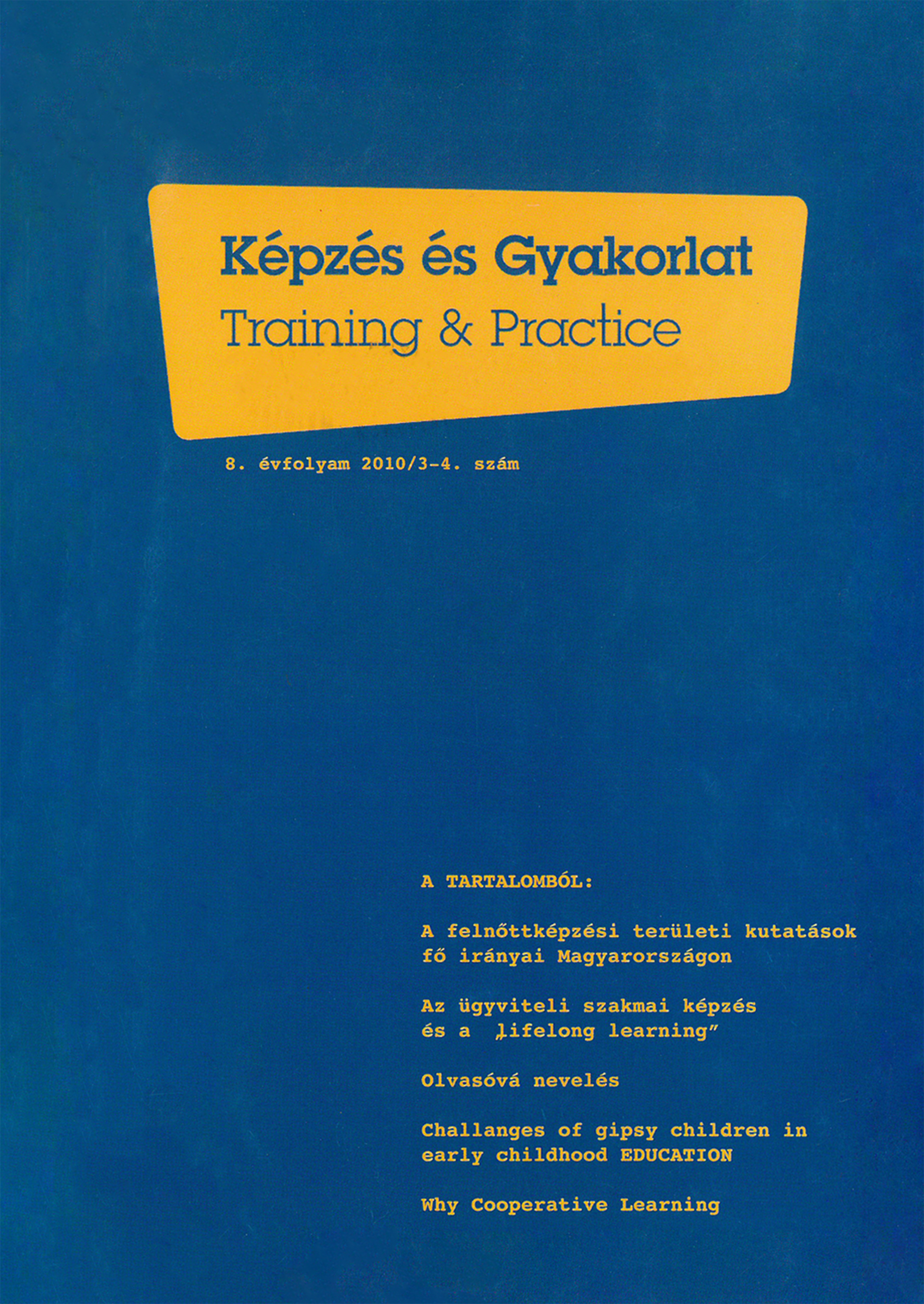The Business Management Training System and the Lifelong Learning
Abstract
In the 21. century the individual's competence development the focus of vocational training due to the lifelong learning paradigm. Its basic aim is to develop action skills and cooperative skills. The results of the reform of vocational training system are the more and more cooperative and beneficial vocational qualifications, the guarantee of transit among them, the credit compensation of the previous qualifications, and the creation of a trade market that fits the labour market demands. Module system makes more efficient training possible with branches and postgraduate vocational trainings. Those who choose one of business management vocational higher education programmes can get a marketable trade in two years, or can continue their studies on BA level with the compensation of their credits.
References
Az 1/2006. (II. 17.) OM-rendelet az Országos Képzési Jegyzékbe történő felvétel és törlés eljárási rendjéről
Alapképzési és hitéleti szakok jegyzéke, http://www.nefmi.gov.hu/felsooktatas/[alapkepzesi_szakok_kkk_101117.pdf]
Barakonyi Károly (2004): Rendszerváltás a felsőoktatásban. Bologna-folyamat, modernizáció, Akadémiai Kiadó, Budapest
Farkas Éva: Megújulás útján a szakképzés. In Tudásmenedzsment (VII. évf.) 2. sz.
Hajdicsné Varga Katalin (2007): Ügyviteli szakügyintéző - Titkárságvezető, Kaposvári Egyetem
Harangi László: Az élethosszig tartó tanulás minőségi követelményei az európai oktatásban, http://oki.hu/printerFriendly.php?tipus=cikk&kod=2004-06-vt-harangi-Elethosszig
Magyar Virtuális Enciklopedia (2003), MTA, http://www.enc.hu/enciklopedia/fogalmi/ped/elethosszig.htm
Zachár László: Az egész életen át tartó tanulás kulcspontjai az emberi erőforrás fejlesztésében, http://www.ofakht.hu/old/muh/p/nyomtat/p217.html
Downloads
Published
Issue
Section
License
Copyright (c) 2010 Hajdicsné Varga Katalin

This work is licensed under a Creative Commons Attribution-NonCommercial-NoDerivatives 4.0 International License.








